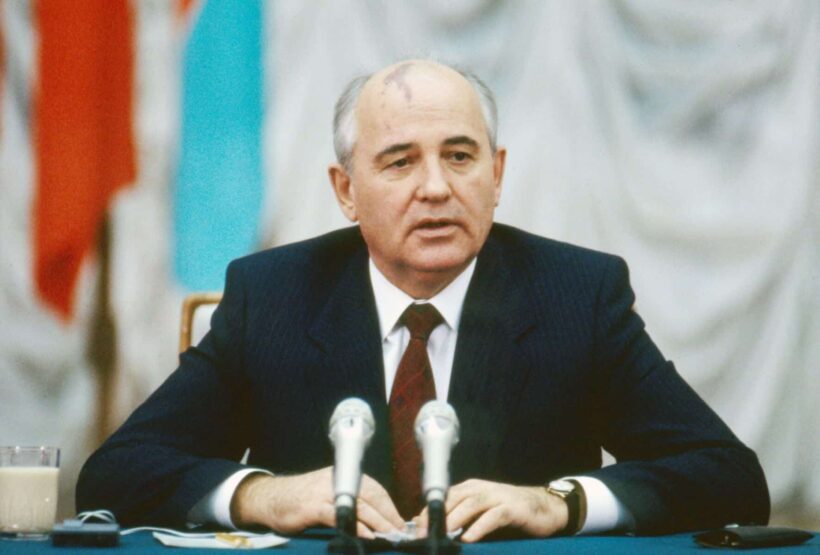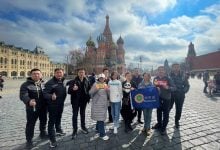Former Soviet Union premier Mikhail Gorbachev dies aged 91

Former Soviet Union leader Mikhail Gorbachev died last night aged 91.
The Central Clinical Hospital in Moscow stated, “Gorbachev died this evening after a serious and long illness.”
He will be buried in Moscow’s Novodevichy Cemetery next to his wife Raisa, who died in 1999.
Tributes have been poured in for the 1990 Nobel Peace Prize winner.
UN chief Antonio Guterres said Gorbachev changed the course of history.
“Mikhail Gorbachev was a one-of-a kind statesman. The world has lost a towering global leader, committed multilateralist, and tireless advocate for peace.”
European Union President Ursula von der Leyen hailed him as a “trusted and respected leader who opened the way for a free Europe. This legacy is one we will not forget.”
Henry Kissinger, who served as US Secretary of State under President Richard Nixon, said that Gorbachev will be “remembered in history as a man who started historic transformations that were to the benefit of mankind and the Russian people.”
James Baker, who negotiated the reunification of Germany with Gorbachev’s government, added, “History will remember Mikhail Gorbachev as a giant who steered his great nation towards democracy.”
Gorbachev was the leader of the Soviet Union from 1985 until its collapse in 1991 and is largely recognised for trying to reform the Soviet system by allowing some political and economic freedom and for bringing decades of a Cold War to an end.
The dissolution of the Soviet bloc in 1991 was marked by Gorbachev’s resignation that year and ended the Cold War which led to the independence of several Eastern European countries as well as the establishment of the modern Russian state.
At 54 he was the youngest member of the ruling council known as the Politburo and seen as a breath of fresh air after several aging leaders.
His policy of glasnost, or openness, allowed people to criticise the government in a way that had been previously unthinkable. But it also unleashed nationalist sentiments in many regions of the country which eventually led to its collapse.
Many Russians never forgave him for the turmoil that followed the collapse of the USSR.
Russian President Vladimir Putin expressed his deepest condolences but there is no love lost.
Russia’s state media has cast Gorbachev in the role of the enemy. It has variously portrayed him as a CIA stooge and the man responsible for the collapse of the Soviet Union – “the greatest political catastrophe of the 20th century,” Putin said.
In his last years, when he was an active charity campaigner, following the death of his wife Raisa to cancer, Gorbachev became somewhat of a paradoxical figure.
Abroad, he was viewed as the hero of the cold war, whose actions, or lack of them, ushered in a freer world. In Russia he was largely reviled and unloved, an unperson at best, a traitor at worst.
SOURCE: BBC Guardian
Latest Thailand News
Follow The Thaiger on Google News:


























